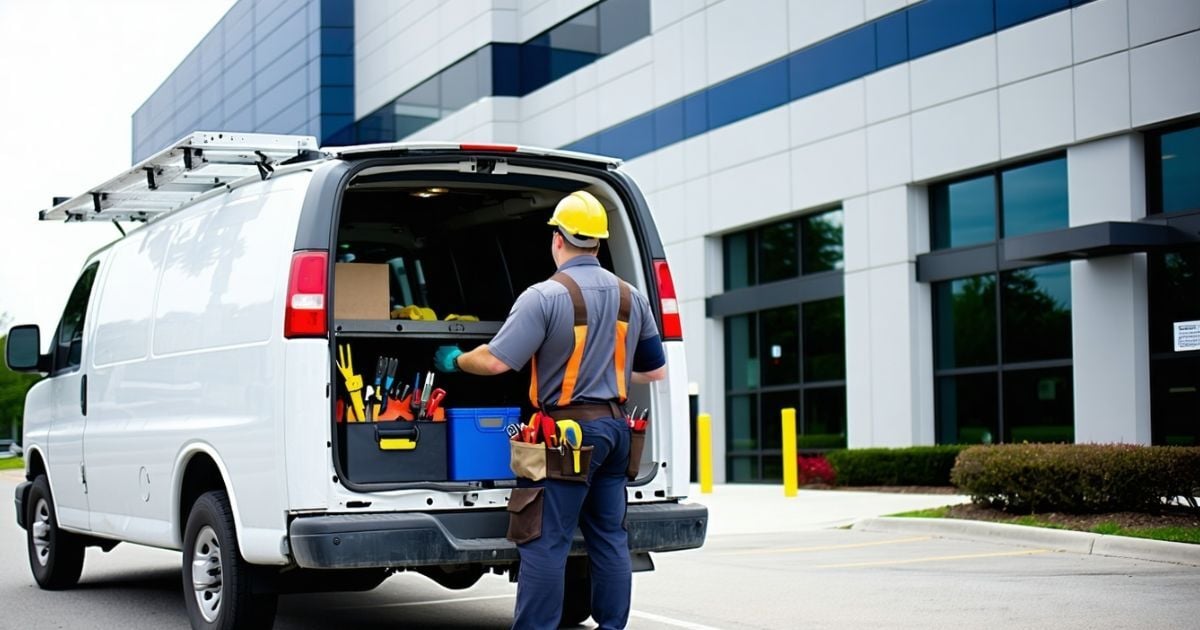Can a Preventative Maintenance Contract Help With Indoor Air Quality and Allergies?
November 24th, 2025
4 min read

If you manage a commercial building, you likely spend a lot of time thinking about comfort, safety, and cost. One area that often gets overlooked is indoor air quality. It’s more important than you might think, especially for people with allergies or breathing problems.
At Harold Brothers Mechanical, we’ve helped businesses across Massachusetts maintain clean, efficient HVAC systems for 17 years. We know that proper maintenance keeps your equipment working and helps protect the people in your building.
So here’s a common question:
Can a preventative maintenance contract help improve indoor air quality and reduce allergy symptoms?
The answer is yes, and often, it can make a big difference. In this article, we’ll explore how indoor air problems start, why they matter, and how regular maintenance can help your team breathe easier and stay healthier.
What Is Indoor Air Quality and Why Should You Care?
Indoor air quality, or IAQ, is the term used to describe how clean or polluted the air is inside a building. Poor air quality can make people feel sick, tired, or uncomfortable. It can also trigger allergy symptoms like sneezing, coughing, itchy eyes, and sore throats.
These issues are often caused by things like dust, mold, pollen, pet dander, cleaning chemicals, or poor ventilation. If left untreated, these particles and pollutants float through the air and are breathed in by everyone who enters the space.
Over time, this can hurt individual health, but also productivity and satisfaction. When people don’t feel well in your building, they’re more likely to take sick days, file complaints, or avoid the space altogether.
How Do Indoor Air Quality Problems Start?
In most commercial buildings, your HVAC system plays the biggest role in managing air quality. When these systems are clean and working properly, they help remove harmful particles and bring in fresh air.
When they’re ignored or go too long without service, problems build up fast. Air filters clog with dust. Mold can grow inside ducts. Ventilation systems may stop bringing in fresh air and continue recycling the same stale air over and over again. These issues aren’t always visible, but they can be felt, especially by people with asthma or allergies.
Even newer buildings can have problems. A lack of regular HVAC inspections can lead to blocked airflow, too much humidity, or even air that smells musty or feels stuffy.
What Is a Preventative Maintenance Contract?
A preventative maintenance contract is a scheduled service plan between your business and a licensed HVAC or mechanical service provider. Instead of waiting for your system to break down, this contract ensures that professionals regularly check and service your HVAC systems to keep them running efficiently and cleanly.
The contract usually includes things like seasonal inspections, filter changes, cleaning of coils and ducts, and performance testing. It may also include recommendations for improvements based on what the technician finds.
While most people sign up for these contracts to avoid expensive repairs, one of the hidden benefits is that they also help improve air quality, often more than people realize.
How Does Regular HVAC Maintenance Improve Indoor Air Quality?
When your system is maintained on a regular schedule, you reduce the amount of dust, mold, and bacteria that circulate through your building’s air. One of the first ways this happens is through timely filter replacements. Filters are designed to catch harmful particles, but if they’re dirty or clogged, they stop doing their job and may even release those particles back into the air.
Ducts and air conditioning coils are also common trouble spots. If moisture builds up inside them, it can create the perfect environment for mold to grow. That mold then spreads through the air each time your HVAC system runs. But when a technician checks your system regularly, they can clean and dry these areas before mold becomes a problem.
Another benefit is improved ventilation. Many older buildings don’t bring in enough fresh air. Instead, they recirculate the same indoor air repeatedly, which causes pollution and allergens to build up. During maintenance visits, technicians can check airflow, spot ventilation problems, and help improve circulation by adjusting dampers or recommending equipment upgrades.
Some HVAC maintenance contracts even include humidity monitoring. If the air inside your building is too dry or too moist, it can affect both comfort and air quality. Technicians can help balance humidity levels by recommending adjustments or equipment to add or remove moisture as needed.
Can Maintenance Truly Reduce Allergy Symptoms?
 Yes, and often more than people expect. When HVAC systems are clean and working correctly, they help filter out pollen, pet dander, dust mites, mold spores, and other allergens. These are some of the most common triggers for people with seasonal allergies or asthma.
Yes, and often more than people expect. When HVAC systems are clean and working correctly, they help filter out pollen, pet dander, dust mites, mold spores, and other allergens. These are some of the most common triggers for people with seasonal allergies or asthma.
For example, if your building has staff members who sneeze often, get headaches, or complain of dry eyes, poor indoor air quality might be the cause. These symptoms tend to improve after filters are changed, ducts are cleaned, or airflow is restored.
Some industries are especially sensitive to indoor air concerns. Hospitals, schools, child care centers, and office buildings with high foot traffic all benefit from cleaner, better-regulated air. That’s why preventative maintenance contracts are becoming more popular. They’re not just about fixing things, but about creating a healthier work environment overall.
What Should a Good Maintenance Contract Include?
If you’re thinking about signing a preventative maintenance contract, make sure it covers the most important services for indoor air quality. These include filter replacements, coil and duct cleaning, system inspections, airflow checks, and moisture level monitoring. Some companies also offer air quality testing or system upgrades if needed.
Be sure to ask your service provider how often they perform inspections and what’s included at each visit. A good contract should be customized to your building size, usage, and industry needs.
Prevention Leads to Cleaner Air and Healthier Buildings
 Indoor air quality affects more than comfort. It impacts health, focus, and safety. And in commercial buildings where many people work or visit each day, that impact is even bigger.
Indoor air quality affects more than comfort. It impacts health, focus, and safety. And in commercial buildings where many people work or visit each day, that impact is even bigger.
At Harold Brothers Mechanical, we’ve spent 17+ years helping building owners and facility managers create healthier environments through smart HVAC maintenance. Our preventative maintenance programs are designed not just to keep systems running, but to improve the air your people breathe every day.
A preventative maintenance contract is a smart, long-term solution for improving indoor air quality and reducing allergy issues in your building. If you're ready to take the next step, read our article, “Which HVAC Maintenance Fits My Business: Seasonal, Quarterly, Monthly?” to find the plan that best fits your needs.
John Flaherty is the Senior Director of Business Development at Harold Brothers Mechanical, where he plays a key role in fostering client relationships and driving strategic growth. With nearly two decades of experience holding a real estate license, John brings a deep understanding of business development and market dynamics to his role. Before joining Harold Brothers, John dedicated 15 years to education administration at Boston College High School, where he helped shape institutional advancement efforts. A proud alumnus of BC High, he continues to serve on the school's Alumni Advisory Council, strengthening connections within the community. As a contributing author for Harold Brothers Mechanical, John leverages his diverse professional background to provide insightful articles on industry trends, business strategies, and company developments.
Topics:























